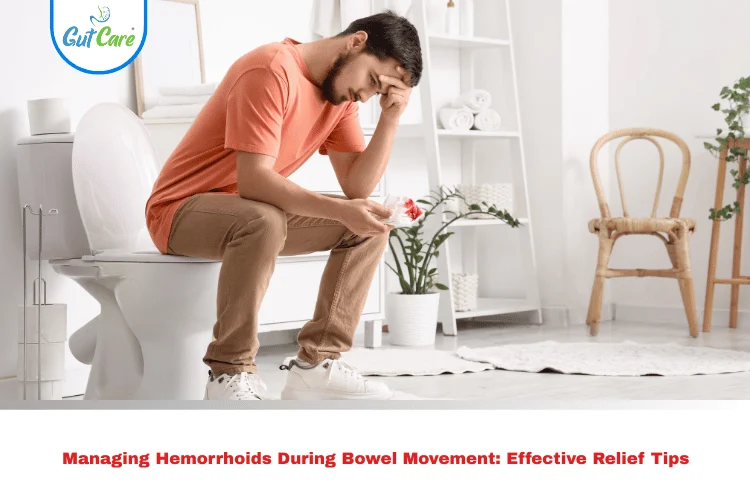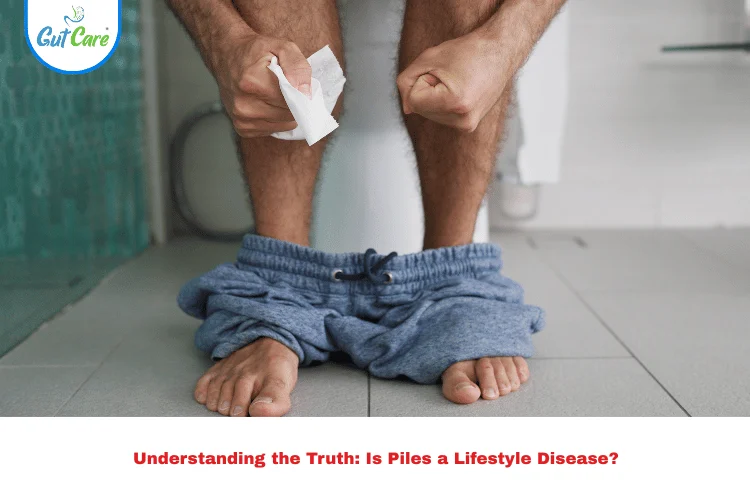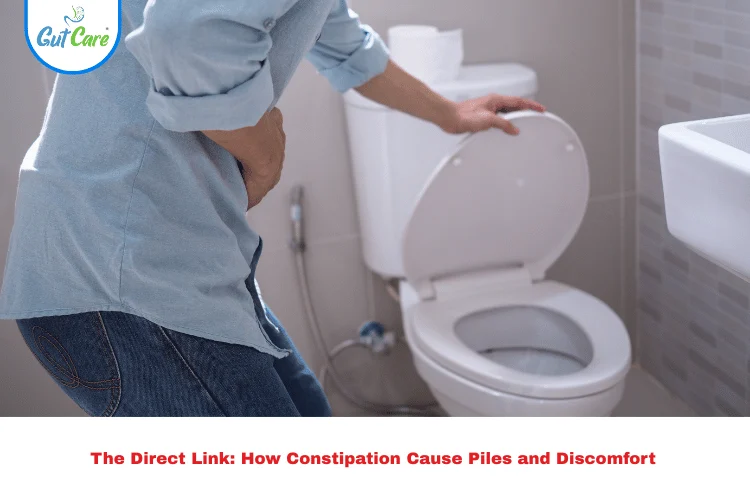Many people suffer silently from the discomfort and embarrassment of hemorrhoids, but understanding the difference between prolapsed hemorrhoids and normal hemorrhoids is key to finding the right treatment. At GutCare Clinics, one of the leading digestive care centers in Bangalore, we often see patients confused about the type and severity of their condition.
If you’re struggling with rectal discomfort, itching, or swelling, you may be wondering: “Do I have a normal hemorrhoid or a prolapsed one?” This guide will explain everything you need to know about both conditions, including symptoms, causes, home remedies, and when to seek medical help.
What Are Hemorrhoids?
Hemorrhoids, or piles, are swollen veins in the anus or rectum. They can be internal (located inside the rectum) or external (under the skin around the anus). Hemorrhoids are very common and affect nearly 75% of adults at some point in their lives.
There are two main types:
Normal Hemorrhoids
These refer to early-stage hemorrhoids that may cause minor symptoms such as itching, discomfort, or mild bleeding during bowel movements. They often go unnoticed and can usually be treated with lifestyle changes and simple home remedies.
Prolapsed Hemorrhoids
Prolapsed hemorrhoids are a more advanced form of internal hemorrhoids that bulge outside the anal opening. Depending on the severity, they may go back in on their own, need to be manually pushed back in, or remain permanently outside.
Symptoms: How to Tell Them Apart
Understanding the symptoms helps you identify the condition and decide when it’s time to get medical help.
Symptoms of Normal Hemorrhoids:
- Mild itching or burning
- Bright red blood during bowel movements
- Occasional discomfort or pressure in the rectal area
- Small lump or swelling (especially in external hemorrhoids)
Symptoms of Prolapsed Hemorrhoids:
- A soft, bulging lump protruding from the anus
- Persistent discomfort or pressure
- Mucus discharge and irritation
- Difficulty sitting or walking
- Manual retraction needed in moderate to severe cases
What Causes Hemorrhoids to Prolapse?
Several factors can lead to the development of prolapsed hemorrhoids:
- Chronic straining during bowel movements
- Long periods of sitting on the toilet
- Pregnancy and childbirth (increased pressure)
- Aging (weakened rectal tissues)
- Low-fiber diet
- Obesity
- Heavy lifting
When pressure builds in the rectal area, it can push internal hemorrhoids out through the anus, resulting in prolapse.
Home Remedies for Hemorrhoids Relief
Many people prefer to start with home care before considering medical procedures. Here are effective home remedies for hemorrhoids, including for prolapsed forms:
1. Sitz Baths
Benefits: Eases pain, reduces inflammation
How to Use: Sit in warm water (not hot) for 15–20 minutes, 2–3 times daily
Precaution: Keep the area clean and dry afterward to avoid irritation
2. Witch Hazel
Benefits: Natural anti-inflammatory, reduces swelling
How to Use: Apply alcohol-free witch hazel to a cotton pad and gently dab on the hemorrhoid
Precaution: Avoid if you have broken skin or allergies
3. Aloe Vera
Benefits: Soothes burning and itching, speeds healing
How to Use: Use pure aloe vera gel directly on the hemorrhoid
Precaution: Do a patch test to rule out allergic reactions
4. High-Fiber Diet
Benefits: Prevents constipation and straining
How to Use: Add fruits, vegetables, oats, whole grains, and legumes to your daily meals
Precaution: Increase water intake alongside fiber to prevent gas or bloating
5. Ice Packs
Benefits: Reduces pain and swelling immediately
How to Use: Wrap ice in a cloth and apply for 10 minutes at a time
Precaution: Never apply ice directly to skin
When Should You See a Doctor?
If your symptoms are worsening or the prolapsed hemorrhoid cannot be pushed back in, it’s time to see a specialist.
Visit a gastroenterologist or a proctologist if you experience:
- Heavy rectal bleeding
- Severe pain or swelling
- Signs of infection (fever, pus, redness)
- Incontinence or uncontrolled bowel movements
- Recurrent prolapse
For patients in Bangalore, GutCare Clinics provides comprehensive hemorrhoid treatment including laser therapy, rubber band ligation, and minimally invasive procedures tailored for prolapsed hemorrhoids.
Professional Treatment Options for Prolapsed Hemorrhoids
When home care isn’t enough, medical treatment may be necessary. Options include:
- Rubber Band Ligation – Cuts off blood supply to shrink the hemorrhoid
- Sclerotherapy – Injection therapy to reduce the hemorrhoid
- Infrared Coagulation (IRC) – Uses infrared light to treat small hemorrhoids
- Laser Hemorrhoidectomy – Precise, low-pain procedure with fast recovery
- Traditional Surgery (Hemorrhoidectomy) – For severe or persistent prolapsed hemorrhoids
Preventing Hemorrhoids and Prolapse
You can reduce your risk by making a few lifestyle changes:
- Avoid straining during bowel movements
- Drink plenty of water (8–10 glasses/day)
- Eat a fiber-rich diet
- Stay active with regular exercise
- Don’t sit on the toilet for too long
- Maintain a healthy weight
Final Thoughts
Understanding the differences between prolapsed hemorrhoids and normal hemorrhoids empowers you to take action early. While mild cases can improve with diet and home care, more severe forms may need medical intervention.
Don’t let embarrassment or misinformation prevent you from seeking relief. If you’re in Bangalore, the experts at GutCare Clinics are here to help you regain your comfort and quality of life.
FAQs About Prolapsed and Normal Hemorrhoids
1. What exactly are prolapsed hemorrhoids?
Hemorrhoids that are prolapsed have basically been the disk shaped veins that are inside, which protrude outside the anus. Depending on the grade, they can go back inside by themselves or still have to be pushed in by hand.
2. Can normal hemorrhoids turn into prolapsed ones?
The regular hemorrhoids, mostly those that are inside, if they are not dealt with promptly then they may get worsened by straining, constipation, or being seated for long and thus be prolapsed hemorrhoids.
3. Are prolapsed hemorrhoids dangerous?
Not much, life can be at risk due to some serious conditions caused by prolapsed hemorrhoids such as pain, bleeding, and the feeling of discomfort symptoms, but in ordinary cases, it is not life-threatening. Besides, if they become thrombosed or infected, they can hardly wait for stages of urgent medical treatment to intervene.
4. How are hemorrhoids treated at GutCare Clinics in Bangalore?
We are at GutCare Clinics dedicated to serving our patients with prolapsed hemorrhoids. We offer options that might be surgical and non-surgical such as laser, banding, or advanced surgical procedures for tough cases.
5. What’s the best home remedy for prolapsed hemorrhoids?
Along with aloe vera and fiber-rich foods, a sitz bath with warm water is one of the most potent remedies for prolapsed hemorrhoids that you can do at home. If your symptoms do not improve, however, it is best to talk to your healthcare provider.



